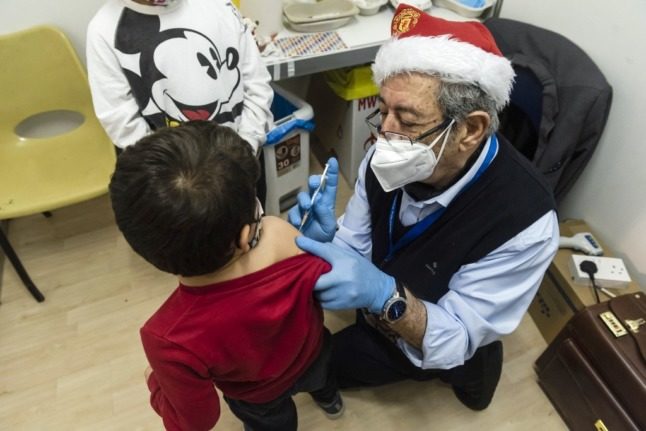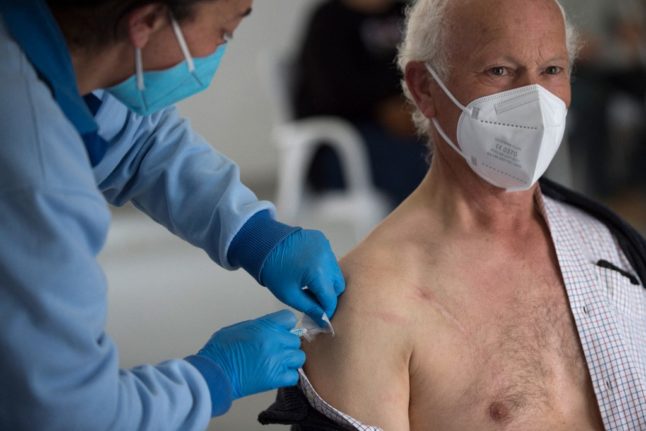On December 7th 2021, Spain’s Public Health Commission approved the use of the Pfizer vaccine for young children, following the green light given by the European Medicines Agency a few days earlier.
The approval of this milder dose – a third of the strength of an adult dose (10 micrograms instead of 30) – came at a time when children under 12 were the age group with the highest infection rate in Spain.
Within eight days, the first batch of 1.3 million doses had been distributed across Spain and the campaign had officially kicked off, with each region deciding whether to vaccinate young children at vaccination centres, schools or hospitals.
READ MORE: How Spain will vaccinate five to 11 year-olds against Covid
Spain has famously led the way in terms of Europe’s vaccination drive, with just under 90 percent of the eligible population 12 and over fully vaccinated.
But have Spanish parents been just as willing to have their children vaccinated against Covid-19?
By January 3rd 2021, of the 3.3 million children aged 5 to 11 in Spain, 29 percent had received their first dose. That equates to just over 964,000 young children.
Five days earlier, it stood at 24.6 percent, which showcases that despite New Year celebrations, the vaccination campaign for this age group is progressing at an average rate of 1 percent a day.
There are of course regional disparities. In the northern region of Cantabria 43 percent of children aged 5 to 11 have received their first dose whereas in the Balearic Islands the rate is 15 percent.
The differences aren’t necessarily all down to more reluctance from parents in certain areas as regional health authorities are not organising their campaigns in the same way, and some have only opened up vaccine appointments to the specific ages rather than the whole 5 to 11 age group.
In a survey published in mid-December by market research company Appinio, 74 percent of parents in Spain said they would have their young children vaccinated against Covid-19, 13.7 percent said they were undecided and 12 percent answered that they would not.
Comparing the vaccination rates among young children with neighbouring countries reveals that Spain is once again one of the main inoculation proponents in Europe.
Italy, which approved the vaccination of 5 to 11-year-olds on December 1st, has given the first dose to 10 percent of children in this age group whereas in Germany the rate was 8.2 percent on January 3rd.
In France, where the paediatric vaccine campaign kicked off two weeks ago, only 64,000 young children of the 5.8 million that are eligible had received their first dose during the first ten days.
Portugal, which started the campaign around the same time as France and has a far smaller young population, saw 88,000 children vaccinated during the first weekend, reflecting the same willingness to get everyone vaccinated as Spain.
In an article published in the Financial Times on December 30th, the London-based daily wrote that “the lack of a common message means Europe may struggle to convince parents to vaccinate their children, depriving the region of a tool to fight the latest Covid surge”.
Children aged 5 to 11 are no longer the age group with the highest infection rate in Spain but the incidence of the virus is in the “extreme” risk category, as is the case with all other age groups.
Spain continues to beat daily infection records as Omicron sweeps through the population.
On Monday January 3rd, the health ministry announced that 372,766 new infections over the New Year’s long weekend had catapulted the country’s fortnightly infection rate up 520 points to 2,295 cases per 100,000 people.



 Please whitelist us to continue reading.
Please whitelist us to continue reading.
Member comments